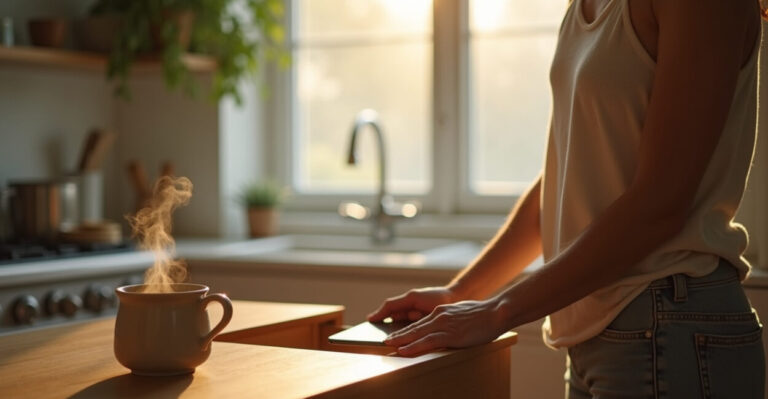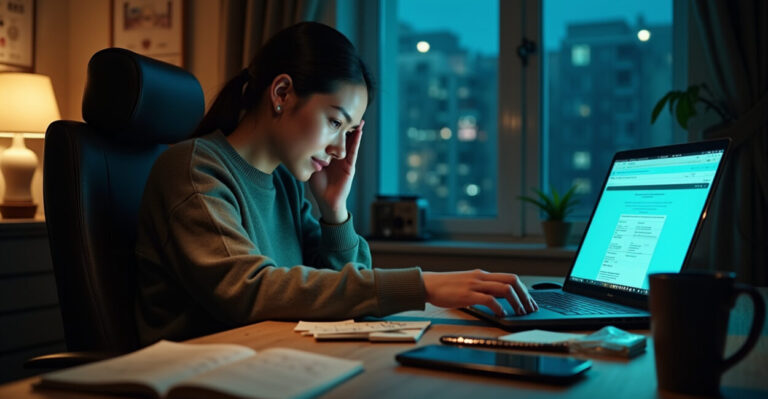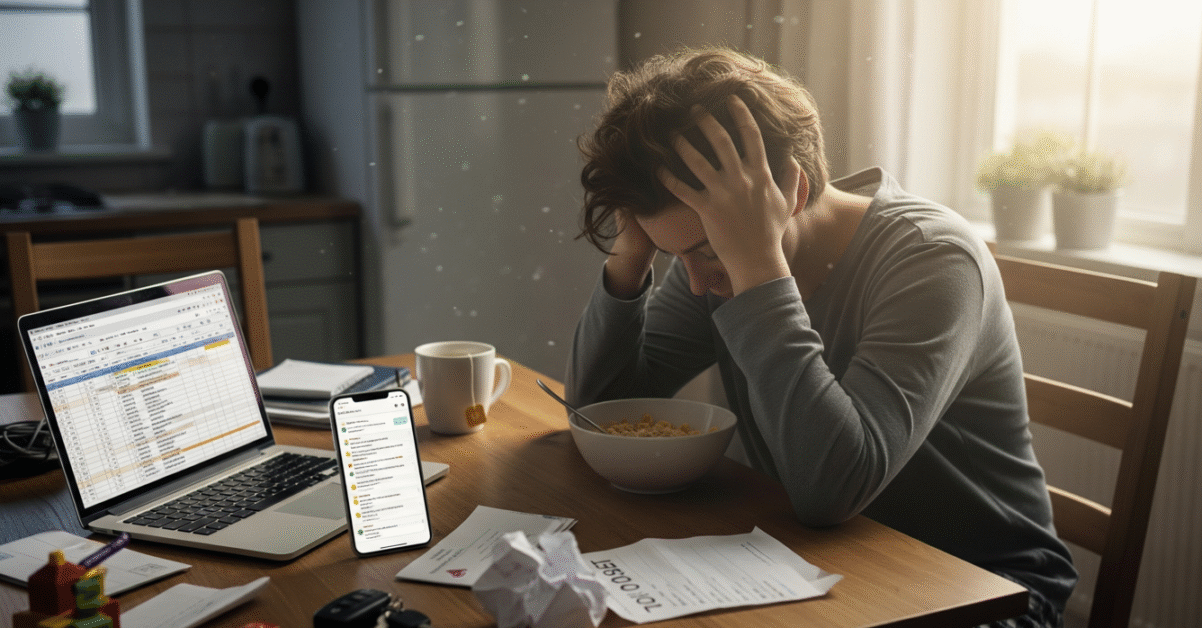Warning: Cannot modify header information - headers already sent in /home/u278635817/domains/mymorninglife.com/public_html/wp-content/plugins/artigosgpt/artigosgpt.php on line 29509
Warning: Cannot modify header information - headers already sent in /home/u278635817/domains/mymorninglife.com/public_html/wp-content/plugins/artigosgpt/artigosgpt.php on line 29509
Imagine starting your day with five different tasks clamoring for your attention before you even get out of bed. This is the reality of morning multitasking, a habit that feels like productivity but often backfires. The morning multitasking effects can leave your mind scattered, increase stress levels, and set a chaotic tone for the rest of your day.
In today’s fast-paced world, it’s tempting to dive straight into emails, messages, and news the moment you wake up. However, research shows that juggling multiple tasks early on can derail your focus and productivity. Understanding these morning multitasking effects is crucial to reclaiming your mornings and boosting your overall well-being.
This article will uncover why avoiding multitasking in the first hour of your day can transform your mindset, reduce stress, and improve your performance. Get ready to discover practical strategies that help you start your mornings with clarity and purpose.
Contents
ToggleThe Science Behind Morning Multitasking Effects
How Multitasking Impacts Brain Function
Morning multitasking forces your brain to switch rapidly between tasks, which drains cognitive resources. This constant switching reduces your ability to focus deeply and impairs memory retention.
Studies reveal that multitasking lowers efficiency by up to 40%, making it harder to complete essential tasks with quality and speed.
The Stress Response Triggered by Multitasking
When you juggle multiple tasks early in the day, your body releases stress hormones like cortisol. This hormonal spike can increase anxiety and disrupt your mental balance.
Chronic exposure to these stress signals in the morning sets a reactive tone, making it difficult to stay calm and collected throughout the day.
Long-Term Cognitive Consequences
Repeated morning multitasking can contribute to cognitive overload, reducing your brain’s ability to process information effectively over time. This may lead to mental fatigue and burnout.
Protecting your brain by minimizing multitasking early on preserves mental sharpness and emotional resilience.
Why Focused Mornings Lead to Better Productivity
Enhanced Concentration and Task Completion
Starting your day focused on one task allows your brain to fully engage, resulting in higher quality work and faster completion times.
Without distractions, your mental energy is preserved for the most important challenges ahead.
Improved Decision-Making
Clear mornings reduce cognitive clutter, enabling better judgment and fewer impulsive decisions. This clarity supports strategic thinking throughout the day.
Focused morning routines help you prioritize effectively, saving energy for meaningful work.
The Ripple Effect on Daily Productivity
When you avoid morning multitasking, the benefits extend beyond the first hour. A calm start creates momentum, reducing errors and boosting overall efficiency.
This positive chain reaction enhances your mood, creativity, and problem-solving skills.
Common Morning Multitasking Triggers to Avoid
Smartphone and Social Media Overload
Checking notifications and scrolling through social feeds fragments attention and invites unnecessary stress early in the day.
Limiting screen time during the first hour helps maintain mental clarity and emotional balance.
Emails and Work Messages
Diving into emails or work chats immediately can overwhelm your mind with demands, leading to reactive rather than proactive responses.
Scheduling specific times for emails prevents early-day cognitive overload and distractions.
News Consumption and Information Flood
Consuming headlines and breaking news first thing often triggers anxiety and diverts focus from personal priorities.
Choosing when and how to engage with news empowers you to manage stress and stay centered.
How to Build a Morning Routine That Minimizes Multitasking Effects
Step 1: Prioritize Single-Task Focus
Choose one meaningful activity to start your day—such as meditation, journaling, or light exercise—to ground your mind.
This focused approach primes your brain for better concentration throughout the day.
Step 2: Set Boundaries for Digital Use
Delay checking your phone or emails for at least 30-60 minutes after waking. Use ‘Do Not Disturb’ modes if needed.
Creating this buffer reduces distractions and stress triggers.
Step 3: Plan Your Day Mindfully
Spend a few minutes outlining your top priorities and intentions before engaging in any multitasking activities.
This habit nurtures clarity and helps you stay on track without feeling overwhelmed.
The Emotional Toll of Morning Multitasking Effects
Increased Anxiety and Overwhelm
Handling multiple tasks simultaneously early on can provoke feelings of anxiety, making it harder to approach the day calmly.
This emotional overload diminishes motivation and overall well-being.
Reduced Sense of Accomplishment
When tasks are fragmented, it’s harder to feel a sense of achievement. This can decrease satisfaction and increase frustration.
Focused mornings boost confidence by allowing you to complete meaningful tasks fully.
Impact on Mental Health
Consistent morning multitasking can contribute to chronic stress, increasing the risk of burnout and mental fatigue.
Protecting your emotional health requires managing early-day distractions and stressors.
Practical Benefits of Avoiding Morning Multitasking
Better Time Management
By focusing on one task at a time, you gain better control over your schedule and reduce wasted minutes.
This disciplined approach enhances daily efficiency and frees up time for rest or hobbies.
Improved Sleep Quality
Reducing screen time and stress in the morning positively influences your sleep patterns, promoting deeper, more restorative rest.
Better sleep supports cognitive function and emotional stability.
Greater Energy and Motivation
Starting with calm, focused activities replenishes your energy reserves and ignites motivation to tackle challenges ahead.
This boost creates a positive feedback loop that sustains your performance throughout the day.
Step-by-Step Guide to Avoid Morning Multitasking
- Wake up and take three deep breaths to center your mind.
- Engage in a single calming activity like stretching or journaling.
- Delay checking your phone or digital devices for at least 30 minutes.
- Set clear priorities for the day before opening emails or messages.
- Use ‘Do Not Disturb’ settings to limit notifications during your morning routine.
- Review your plan calmly and begin your first task with full attention.
Quick Facts Comparison: Multitasking vs. Focused Mornings
| Aspect | Morning Multitasking | Focused Morning |
|---|---|---|
| Productivity | Low – frequent task-switching drains energy | High – deep focus improves task completion |
| Stress Levels | High – triggers cortisol release | Low – promotes calm and control |
| Mental Clarity | Poor – cognitive overload | Clear – supports decision-making |
| Emotional Impact | Negative – anxiety and overwhelm | Positive – confidence and motivation |
Conclusion
Morning multitasking effects may seem harmless or even productive, but they often do more harm than good, scattering your focus and elevating stress right at the day’s start. By choosing to simplify and focus your morning routine, you can protect your mental clarity, reduce anxiety, and set a positive tone that carries through your day. Embrace the power of a calm, single-task morning to unlock greater productivity and emotional balance.
Frequently Asked Questions
What exactly are morning multitasking effects?
Morning multitasking effects refer to the cognitive and emotional consequences of juggling multiple tasks simultaneously during the first hour after waking. This habit can reduce focus, increase stress, and impair decision-making throughout the day.
Why is multitasking in the morning more harmful than later in the day?
The brain is most vulnerable to overload upon waking, as it transitions from sleep to full alertness. Multitasking too early taxes cognitive resources before they are fully replenished, leading to diminished productivity and increased stress.
How long should I wait before checking my phone after waking up?
Experts recommend waiting at least 30 to 60 minutes before engaging with your phone or digital devices. This delay helps maintain focus, reduces stress triggers, and supports a calm start to your day.
Can avoiding multitasking in the morning really improve my mental health?
Yes. Minimizing multitasking early in the day lowers stress hormone levels and prevents cognitive overload, contributing to better emotional regulation and reduced anxiety over time.
What are some simple activities to replace morning multitasking?
Consider meditation, journaling, light stretching, or mindful breathing exercises. These activities foster calmness and prepare your brain for focused work without the distractions of multitasking.
For further reading on cognitive health and productivity, visit American Psychological Association and National Institutes of Health.
More Articles




























